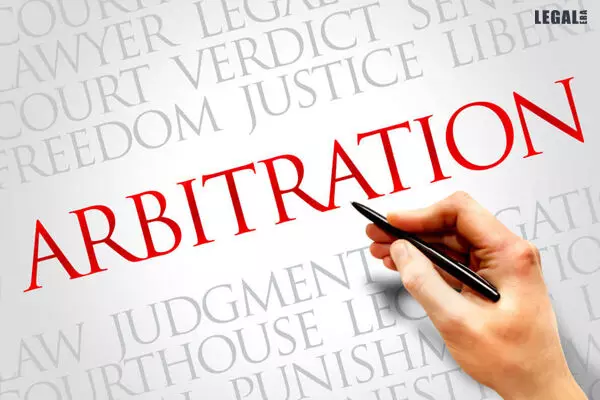- Home
- News
- Articles+
- Aerospace
- Artificial Intelligence
- Agriculture
- Alternate Dispute Resolution
- Arbitration & Mediation
- Banking and Finance
- Bankruptcy
- Book Review
- Bribery & Corruption
- Commercial Litigation
- Competition Law
- Conference Reports
- Consumer Products
- Contract
- Corporate Governance
- Corporate Law
- Covid-19
- Cryptocurrency
- Cybersecurity
- Data Protection
- Defence
- Digital Economy
- E-commerce
- Employment Law
- Energy and Natural Resources
- Entertainment and Sports Law
- Environmental Law
- Environmental, Social, and Governance
- Foreign Direct Investment
- Food and Beverage
- Gaming
- Health Care
- IBC Diaries
- In Focus
- Inclusion & Diversity
- Insurance Law
- Intellectual Property
- International Law
- IP & Tech Era
- Know the Law
- Labour Laws
- Law & Policy and Regulation
- Litigation
- Litigation Funding
- Manufacturing
- Mergers & Acquisitions
- NFTs
- Privacy
- Private Equity
- Project Finance
- Real Estate
- Risk and Compliance
- Student Corner
- Take On Board
- Tax
- Technology Media and Telecom
- Tributes
- Viewpoint
- Zoom In
- Law Firms
- In-House
- Rankings
- E-Magazine
- Legal Era TV
- Events
- Middle East
- Africa
- News
- Articles
- Aerospace
- Artificial Intelligence
- Agriculture
- Alternate Dispute Resolution
- Arbitration & Mediation
- Banking and Finance
- Bankruptcy
- Book Review
- Bribery & Corruption
- Commercial Litigation
- Competition Law
- Conference Reports
- Consumer Products
- Contract
- Corporate Governance
- Corporate Law
- Covid-19
- Cryptocurrency
- Cybersecurity
- Data Protection
- Defence
- Digital Economy
- E-commerce
- Employment Law
- Energy and Natural Resources
- Entertainment and Sports Law
- Environmental Law
- Environmental, Social, and Governance
- Foreign Direct Investment
- Food and Beverage
- Gaming
- Health Care
- IBC Diaries
- In Focus
- Inclusion & Diversity
- Insurance Law
- Intellectual Property
- International Law
- IP & Tech Era
- Know the Law
- Labour Laws
- Law & Policy and Regulation
- Litigation
- Litigation Funding
- Manufacturing
- Mergers & Acquisitions
- NFTs
- Privacy
- Private Equity
- Project Finance
- Real Estate
- Risk and Compliance
- Student Corner
- Take On Board
- Tax
- Technology Media and Telecom
- Tributes
- Viewpoint
- Zoom In
- Law Firms
- In-House
- Rankings
- E-Magazine
- Legal Era TV
- Events
- Middle East
- Africa
Delhi High Court Reiterates That Right Of Party To Nominate Two-Thirds Of Arbitral Tribunal Violates Counter-Balancing

Delhi High Court Reiterates That Right Of Party To Nominate Two-Thirds Of Arbitral Tribunal Violates Counter-Balancing
Cites the judgment of the Supreme Court in the Perkins case
The Delhi High Court has held that an arbitration clause that confers on a party the right to nominate two-thirds of the arbitral tribunal violates the principles of ‘counter-balancing.’
The bench of Justice Jyoti Singh held that a party could not have the right to nominate most of the arbitral tribunal, as the exercise could cast doubts on its neutrality and impartiality.
On 03 August 2021, the parties entered an agreement, which comprised an arbitration clause providing the appointment of a three-member tribunal for the adjudication of the dispute. Out of these members, the petitioner would choose its nominee from a panel of four names forwarded by the respondent. The remaining two arbitrators, including the presiding arbitrator, would be nominated by the respondent.
However, a dispute arose between the parties and the petitioner invoked the dispute resolution clause. Since the respondent did not respond to the request to appoint the conciliator, the petitioner approached the court.
The petitioner sought the appointment of an independent arbitral tribunal on the grounds:
• The procedure for the appointment of the tribunal contained in the agreement was illegal under Section 12(5) of the A&C Act.
• The procedure provided for the nomination of the petitioner’s arbitrator from a panel of four arbitrators. It was against the principle laid down by the court in the Voestalpine Schienen Gmbh Vs. Delhi Metro Rail Corporation Ltd case.
• It confers on the respondent, the power to appoint two-thirds members of the tribunal, which disturbs the equilibrium and violates counter-balancing.
The respondent filed the counter-arguments:
• The procedure for the appointment of the arbitrator(s) was valid and did not violate Section 12(5).
• The Supreme Court in CORE upheld the validity of a similarly-worded arbitration clause and upheld the appointment of the arbitrators from a panel maintained by one of the parties.
• The principle of counter-balancing was not violated.
Thus, while analyzing the submissions, the court observed that the procedure was not valid for two reasons. One, the panel was not broad-based as required in the terms of directions given by the Supreme Court in the Voestalpine case. Two, the power given to the respondent to nominate two-thirds members of the tribunal violated the principle of ‘counter-balancing’ as enunciated by the apex court in the Perkins case.
The judge held that a party did not have the right to nominate much of the arbitral tribunal. Such an exercise cast doubts on the neutrality and impartiality of the arbitral tribunal. The panel offered by the respondent consisted of only four names and was restrictive. Moreover, only the ex-employees of the respondents were a part of the panel; therefore, it meant that both by numbers and diversity, the panel was not broad-based.
The court thus allowed the petition and appointed the nominee arbitrators for both parties. It directed the two arbitrators to appoint the presiding arbitrators.



